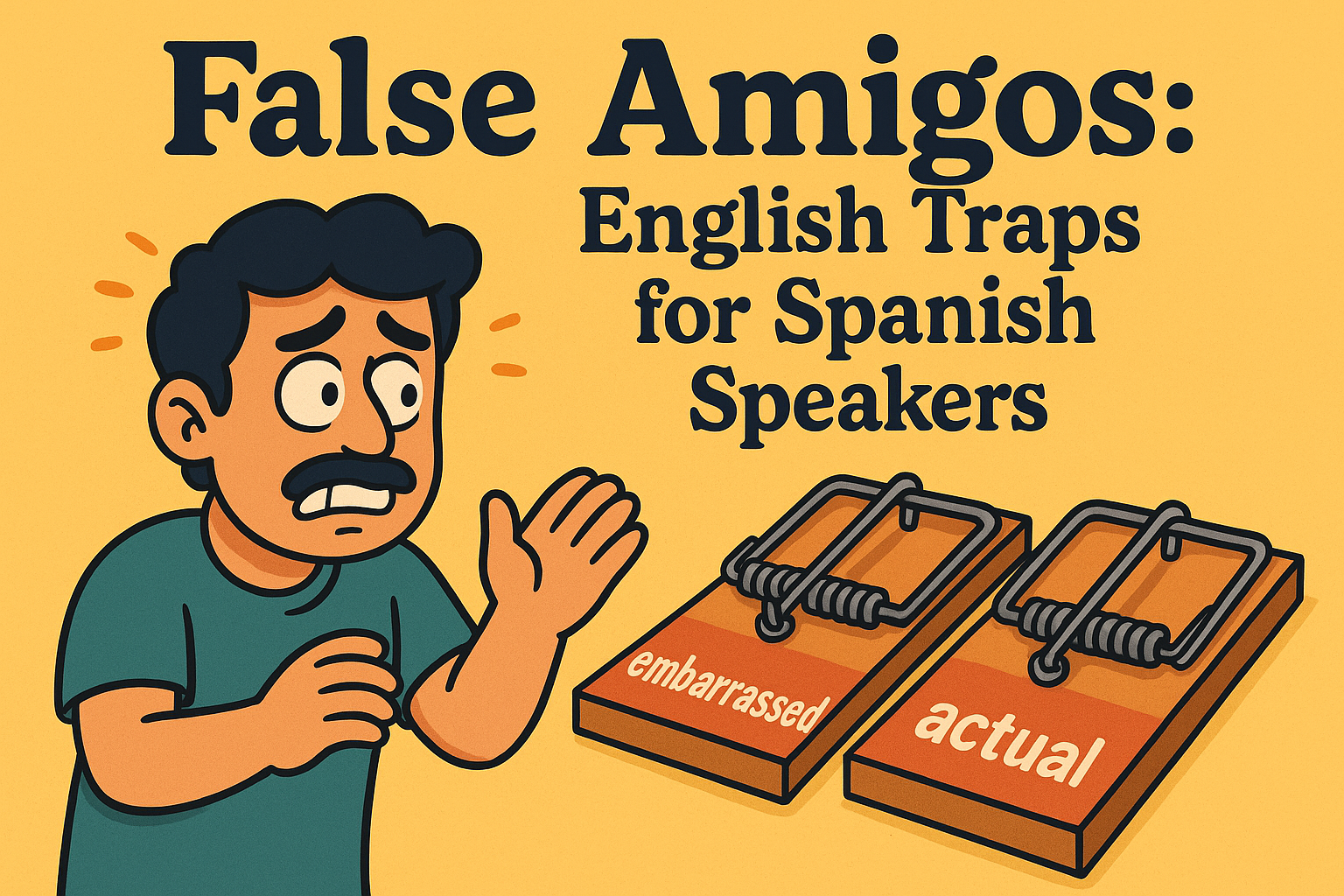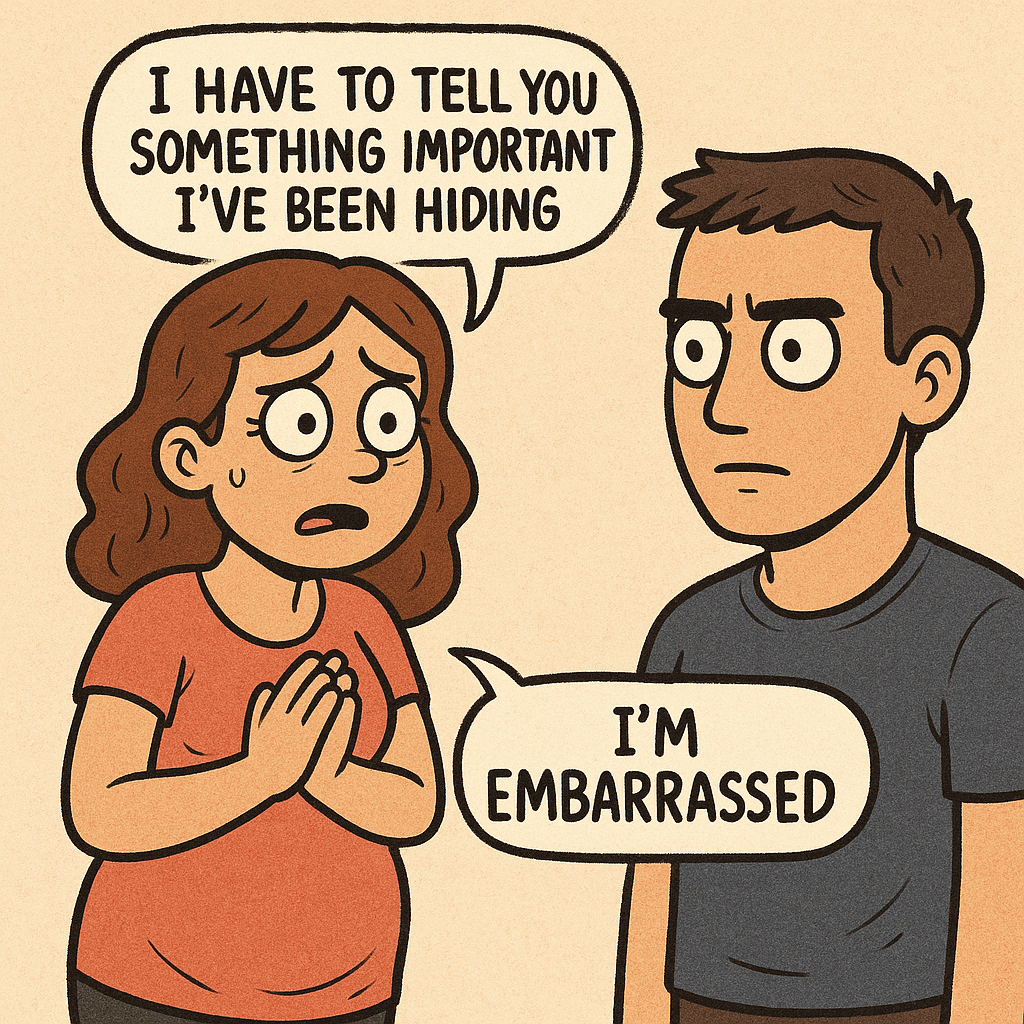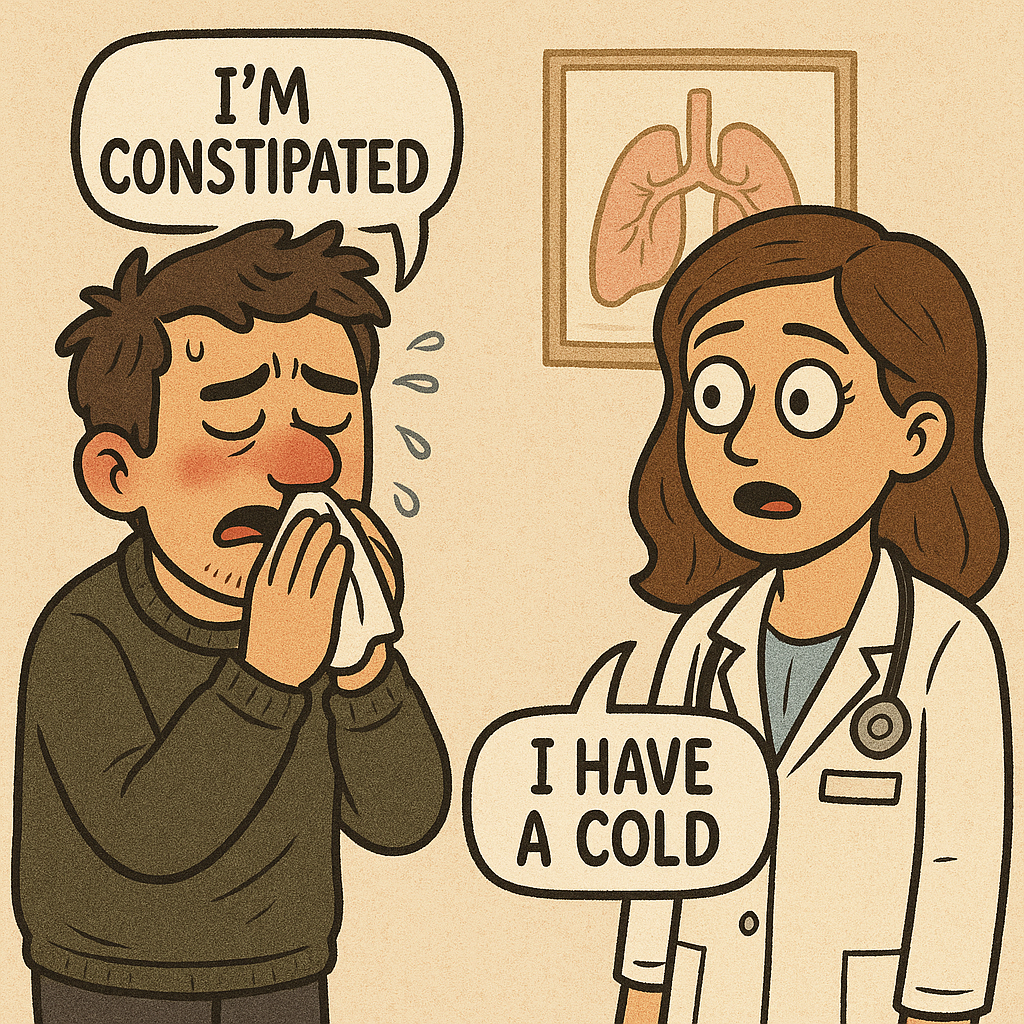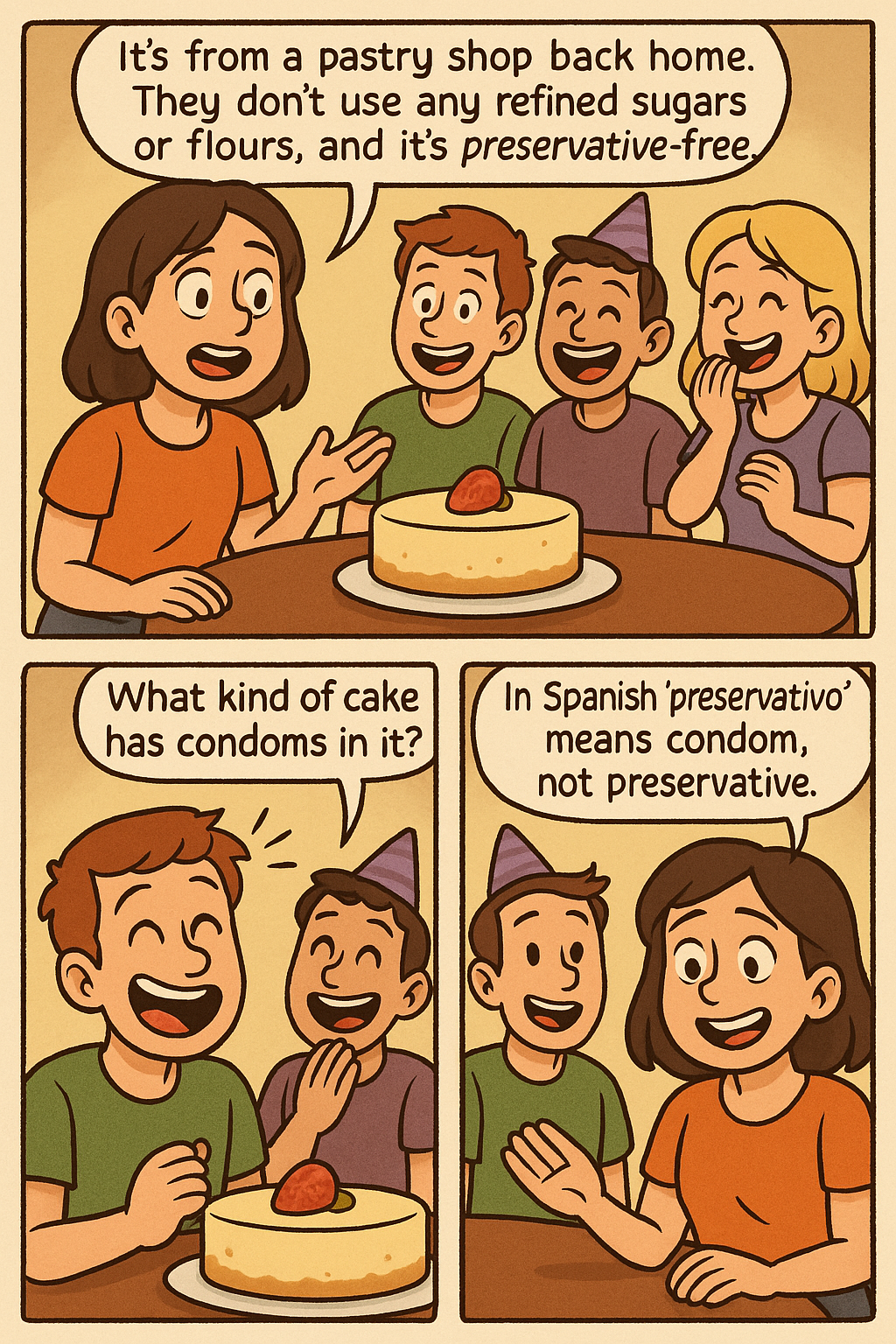
False Amigos: English Traps for Spanish Speakers
Have you ever seen two words that are written very similarly in two different languages but have very different meanings? This phenomenon actually has a name: false friends. These words are often used incorrectly, leading to unexpectedly funny situations.
I remember when I was young, in an English class when I was starting to learn the language, my teacher asked me: What are some of your interests? I responded by talking about what I liked to do in my free time, finishing it off with … and I like to buy rope. The teacher, whom I really appreciated, giggled quietly because no one else noticed the false friend. She explained the misunderstanding, and everybody learned about false friends. I’m sure they will remember same as I do. Rope means 'cuerda' in Spanish, ropa is 'clothes'.

The funniest:

Imagine you are about to tell someone you're pregnant. You’re nervous, your palms are sweating, and you’re not sure how your boyfriend will react. You say, “I have to tell you something important I’ve been hiding.” He immediately tenses up. You finally gather the courage and say, “I’m embarrassed.”
He just stares at you directly in the face, no reaction. He doesn’t understand.
You meant to say, “I’m pregnant”, but the nerves got to you. It's completely normal. But why? Because you confused the Spanish word “embarazada” with the English word “embarrassed,” which means in Spanish “avergonzada”.
That’s the kind of false friend mistake that can cause real confusion, right?
How would you say “estoy constipado” in English? I’m constipated? Well… not exactly. “Constipated” actually means you can't go to the bathroom…
The correct way to say it is: “I have a cold.”
So be cautious of this mistake, it can lead to awkward or funny situations.


Guess what the word “spectacles” means.
Fluent English speakers will easily say it’s glasses. The object you use so you can see properly, made of glass or plastic lenses. But Spanish speakers can easily mistake it because of the word “espectaculo” (which means “show” or “performance”). Imagine a slip-up: He’s a big success in spectacles. You might end up thinking he’s famous because of his glasses!
Most Common:
How do you say “assistir a una fiesta” in English? Spanish speakers might intuitively say: “I assisted the party”, right? Well, “assisted” really means to help. What you really meant to say is, “I attended the party”. However, you would say I went to a party. It is more colloquial, 'attend' means asistir, it's more formal. You use it also for Attendance Sheet in a classroom to have a list and signatures of the students who attended the class.
And what if I bought a book? Where do I buy a book? Spanish-speaking English learners might think the correct word is "library”, based on the Spanish word “librería,” but that would be incorrect. The correct term is “bookstore,” because a library means “biblioteca”. A place where you can borrow a book, but not buy them.

Guess what “sympathetic” means. Spanish speakers might say it means “simpático”. But that’s a wrong guess! In English, “simpático” is actually "nice" or "friendly."
For example: “My teacher was really nice on the first day of class.”
"Sympathetic" means someone who is understanding, compassionate or, empathetic. In Spanish, “comprensivo”.
The most dangerous ⚠️:
You have met up with a friend. It’s his birthday, and you brought a cheesecake. Everybody is eating it, they love it, and they ask you where the cake is from.
You proudly say: It’s from a pastry shop back home. They don’t use any refined sugars or flours, and it’s preservative-free.
Suddenly, everybody bursts out laughing.
Someone says: What kind of cake has condoms in it!?
That's when it hits you. Finally understand. In Spanish “preservativo” means condom, not preservative.
You laugh and explain: I really meant to say “additives.”

If there is a lot of noise that gets you angry, in Spanish you say: “No me molesta el ruido.” “Ruido” means "noise," and “molesta” might look like the English word "molest," but it actually means annoy or bother. E.g. It doesn't bother me. (the noise)
In English, "molest" is a very serious word that refers to a sexual abuse. Confusing “molestar” with molest can lead to awkward or even dangerous situations.


